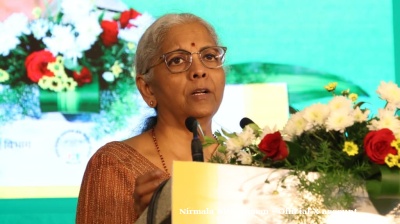Google has agreed to purchase carbon credits from an Indian start-up that transforms agricultural waste into biochar, a charcoal-like material that captures CO2 and enriches soil, Reuters reported on January 16 citing a company statement.
The agreement with Varaha, the supplier, marks Google’s entry into India’s carbon dioxide removal (CDR) sector and is one of the largest biochar-related deals to date.
The US tech company joins others in exploring CDR to offset emissions by extracting CO2 already present in the atmosphere or oceans. While some firms invest in costly technologies for direct air capture, biochar offers a potentially cheaper, near-term solution.
Varaha plans to source waste from smallholder farms in India, converting it into biochar through specialised reactors. This process can lock away CO2 for centuries and provide farmers with a fertiliser alternative. Google has committed to buying 100,000 tonnes of carbon credits from Varaha by 2030. According to Varaha CEO Madhur Jain, India’s agricultural waste could generate enough biochar to sequester over 100 mn tonnes of CO2 annually, highlighting significant growth potential.
Founded in 2022, Varaha believes smallholder farmers in Asia hold transformative potential for removing atmospheric carbon on a global scale. Since its inception, the organisation has brought together a team of scientists, technologists and agricultural experts dedicated to advancing nature-based solutions to tackle the climate crisis.
Though CDR represents a small share of the global carbon market, it is poised for rapid expansion as nations and companies seek innovative ways to tackle emissions, according to Reuters. Critics, however, caution that CDR cannot replace the need for substantial emission reductions and question the permanence of biochar’s CO2 storage capabilities, the news agency added.
Jain acknowledged these concerns but emphasised the urgency of action. He said that the world is nearing peak warming and even temporary solutions lasting decades are essential steps forward.
bneGREEN

Kyrgyzstan says neighbours “upset” by country’s lack of water
“This year we were supposed to overcome shortages, but instead, they have intensified,” deputy head of cabinet tells Uzbekistan and Kazakhstan.

EXPLAINER: What is the EU’s CBAM and how will it affect global trade from 2026?
The European Union’s Carbon Border Adjustment Mechanism (CBAM) will enter its full operational phase on January 1, 2026, marking a major shift in global climate and trade policy.

Iran faces critical water crisis after driest year in five decades
Iran faces critical water crisis after driest year in five decades with 40% nationwide rainfall drop.

Global renewables to double by 2030, but IEA warns momentum must accelerate
Global renewable energy capacity is on course to double by 2030, reaching 4,600 GW—comparable to the current combined total of China, the European Union and Japan—according to the International Energy Agency’s Renewables 2025 report.

.jpg)


